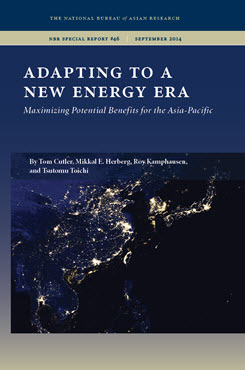The United States' Military Posture toward the Middle East
Potential Drivers of Change
This is one of four essays in the NBR Special Report “Adapting to a New Energy Era: Maximizing Potential Benefits for the Asia-Pacific.”
EXECUTIVE SUMMARY
This essay examines U.S. security commitments to the Middle East and Persian Gulf, highlights key factors shaping U.S. engagement, and raises questions about potential roles for new security providers, especially among oil-importing states in East Asia.
MAIN ARGUMENT
The U.S. has enduring security interests in the Middle East and Persian Gulf that will remain even as U.S. oil and gas imports from the region decline. Yet as measured from the highs in posture at the peak of the Afghanistan and Iraq wars, U.S. troop levels are already much lower, leading some to conclude that the U.S. is in the midst of a strategic disengagement. Supporting this notion are historic levels of war fatigue, shifting budget constraints, and a deep concern about the long-term costs of caring for war veterans. Meanwhile, the U.S. strategic rebalance to Asia and great-power relationship with China will also have some bearing on the future U.S. posture in the Middle East and Persian Gulf, especially in light of increasing East Asian dependency on Middle Eastern gas and petroleum. However, the prospects of another state or other states providing security in this vital oil-producing region are uncertain.
POLICY IMPLICATIONS
- The U.S. faces hard choices about how many forces in region its enduring commitment to the broader Middle East and Persian Gulf actually requires. Part of this exercise includes reassessing what security is needed.
- Oil-importing states must also assess whether changing dynamics and a potentially decreased U.S. posture create an expectation that these states provide forces and contribute to Middle East and Persian Gulf security in greater ways than before.
- Several future outcomes might ensue from the current situation. In one scenario, the U.S. maintains the capacity to respond to crises but with fewer capabilities in region to shape pre-crisis events, and no other country takes over the United States’ current role. Another, if unlikely, scenario is that the U.S. and China would reach an agreement to share security responsibilities. A third scenario might entail the U.S. building on existing patterns of cooperation to construct tailored multilateral approaches that can engage a range of countries in providing for regional security.
Roy Kamphausen is Senior Advisor for Political and Security Affairs at the National Bureau of Asian Research.


